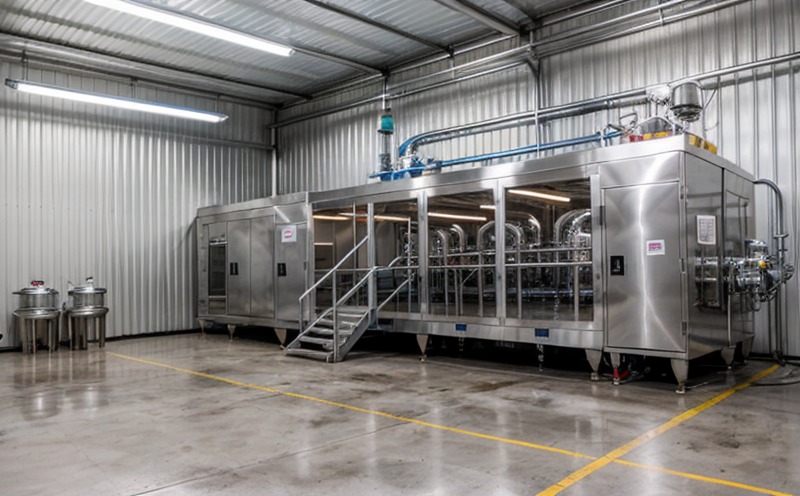Canning facility hygiene inspection
In the food safety and hygiene sector, ensuring that canned products meet strict quality standards is paramount. This process involves rigorous inspections of canning facilities to confirm adherence to global health regulations and industry best practices. Hygiene in such environments affects not only product safety but also consumer trust and brand reputation.
Hygiene inspection focuses on several critical areas within the canning facility, including personnel hygiene, environmental cleanliness, equipment sanitation, and process control. Personnel are required to follow strict protocols for hand washing, wearing appropriate attire, and minimizing contact with food products. Environmental conditions such as temperature, humidity, and air quality must be monitored continuously.
Equipment sanitation is a key aspect of the inspection process. All processing machines should undergo thorough cleaning before use and regular maintenance schedules should be followed to prevent contamination. Process control involves ensuring that every step in the canning process—from raw material handling to final product packaging—is executed according to predefined parameters.
The importance of hygiene cannot be overstated; even minor lapses could lead to product spoilage, health hazards, or costly recalls. Compliance with international standards like ISO 22000 and HACCP (Hazard Analysis and Critical Control Points) is essential for maintaining a robust food safety program.
Regular inspections are conducted using various methods including audits, sampling, and microbiological testing. Samples collected during the inspection process undergo rigorous analysis to detect any signs of microbial contamination or other issues that could compromise product integrity.
The goal of these inspections is not only to ensure immediate compliance but also to foster a culture of continuous improvement within the facility. By identifying potential risks early on, facilities can take proactive measures to prevent future incidents and maintain high standards of hygiene at all times.
Applied Standards
The inspection of canning facilities must adhere to several international standards that prioritize food safety and quality. These include:
- ISO 22000: This standard provides requirements for a food safety management system designed to ensure that all stages of the food chain, from primary production to final consumption, are managed effectively.
- HACCP (Hazard Analysis and Critical Control Points): A systematic approach to identifying potential hazards and implementing preventive measures to control them.
- EN 12831: This European standard covers the requirements for the design, construction, installation, operation, maintenance, and decommissioning of food processing equipment used in low-acid canned foods.
These standards provide a framework that helps facilities implement effective hygiene practices and ensure compliance with regulatory requirements. By adhering to these guidelines, canning facilities can enhance their reputation and meet the expectations of consumers who demand safe, hygienic products.
Scope and Methodology
| Aspect | Description |
|---|---|
| Personnel Hygiene | Inspection includes reviewing hygiene protocols, personal protective equipment (PPE) usage, and cleanliness of personnel. |
| Environmental Sanitation | Assessment of air quality, temperature, humidity levels, and overall cleanliness of the facility environment. |
| Equipment Sanitation | Evaluation of cleaning procedures for processing equipment, including validation of sanitation methods used. |
| Process Control | Review of critical control points in the canning process to ensure all steps meet predefined standards. |
| Sampling and Testing | Collection and analysis of samples from different stages of the canning process, including raw materials, intermediate products, and final canned goods. |
| Record Keeping | Verification of detailed records maintained by the facility to track hygiene practices and compliance with standards. |
The inspection methodology involves a combination of on-site observations, document reviews, and laboratory analyses. The aim is to provide comprehensive coverage of all critical areas affecting food safety and hygiene within the canning facility.
Quality and Reliability Assurance
Ensuring quality and reliability in canned products requires a multi-faceted approach involving stringent inspections, robust processes, and continuous monitoring. The inspection process not only evaluates current conditions but also sets benchmarks for future performance.
By identifying areas needing improvement early on, facilities can implement targeted interventions to enhance overall hygiene standards. Continuous monitoring ensures that any deviations from established protocols are addressed promptly, maintaining consistent product quality.
The use of advanced technology and data analytics further enhances the inspection process by providing real-time insights into facility performance. This allows for proactive adjustments to be made before issues escalate, thereby minimizing risks associated with food safety.
Collaboration between inspectors and facility personnel fosters a culture of shared responsibility towards maintaining high standards of hygiene. Regular training sessions ensure that all staff members are aware of the latest best practices and regulatory requirements.





